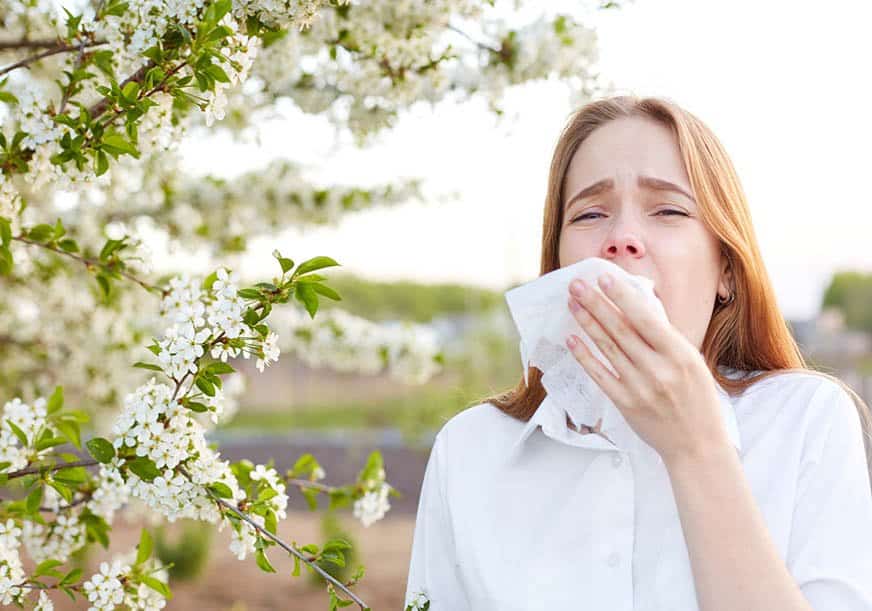The word allergies seems to be around us wherever we go, from kid lunches to labels on food to people finding excuses for their sniffles and sneezes, allergies are to blame. However allergies, and the ways they manifest can vary greatly from person to person and even vary greatly in the same person, depending on the stimulus.
What are allergies?
Allergies actually have a lot to do with your immune system. The immune system is in place to defend your body from germs, viruses, and other invaders. When your body has an allergy and detects that allergy as an invader, it produces a large amount of antibodies. A normal amount of antibodies is great for protecting your system, but too much can cause many different effects for some individuals. Just like each person is different, their antibodies react differently depending on their makeup.
What are common types of allergies?
The American Academy of Allergy, Asthma, and Immunology reports that over 50 million Americans suffer from allergies of some type. With so many people reporting allergies, it stands to reason there are thousands, if not more, different triggers. Some of the most common are different foods, like peanuts, milk, or shellfish, different airborne allergens, like dander, pollen, or mold, or medications or latex.
What are some symptoms?
Just as individuals and their potential allergies vary, so do the symptoms they may have. Red and itchy eyes frequently occur with some of the airborne allergens. Asthma, or difficulty breathing, is a common symptom for a number of allergies. Itching, either of the throat or the skin, is frequently seen, especially when paired with hives.
In more serious allergies, swelling of the face, lips, tongue, and throat are indications a reaction is taking place. Further, anaphylaxis may occur with the most severe allergies and needs immediate medical attention. Several indications of anaphylaxis, as stated by the Mayo Clinic, include “loss of consciousness, a drop in blood pressure, severe shortness of breath, skin rash, lightheadedness, a rapid, weak pulse, nausea and vomiting.” For swelling around the face or anaphylaxis, call 911 and treat with an epinephrine injection if you have one.
How are allergies detected?
There are two options for identifying allergies. The first is a blood test that can measure the allergy causing antibodies in your system. The second involves pricking your skin to expose you to common allergies. By measuring how those allergens impact your body with hives, they can detect the presence of allergies.
What are ways I can treat allergies?
There is not a true treatment for allergies, but there are ways to avoid your triggers and to treat your symptoms. Known allergies, especially in the case of severe allergies, should be avoided whenever possible. This is especially important for food allergies or allergies that are severe enough to cause facial swelling or anaphylaxis. Some find that different medications, from over the counter to prescription strength options help keep their allergies at bay.
When should I call the doctor?
Besides the emergency scenarios, you can begin discussing with your primary care physician if you suspect allergies. In the meantime, it may be good to keep a diary of what you are eating, what you are exposed to, and what symptoms you are feeling to discuss at your appointment.
Allergies are at best uncomfortable and inconvenient, for many more they are dangerous and a health concern. If you are having issues with known allergies or suspect that you may have allergies, then please contact us or come see us today. Our doctors are available to see and treat patients from 8am to 8pm, every day of the week.



